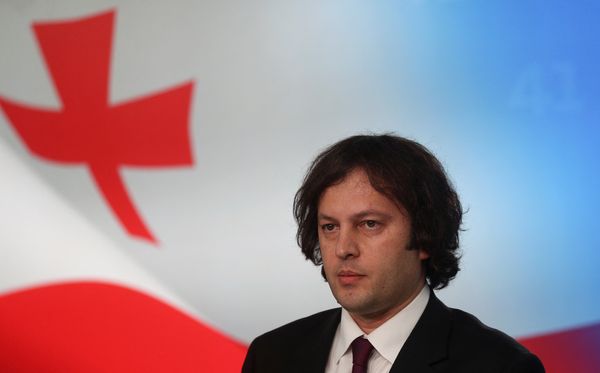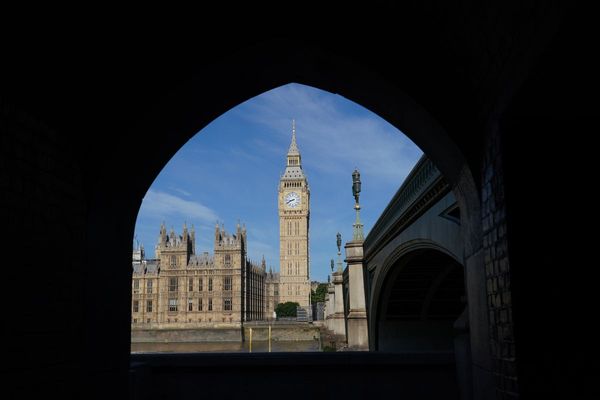
European elections this year — along with the war grinding away in Ukraine — are picking up where 2022 left off: with rising far-right parties threatening the continent’s liberal democracy.
The first round starts this weekend, with the first vote to choose the president of the Czech Republic. Billionaire populist and ex-PM Andrej Babis, who built his political career forming his own party and buying his own media, is attempting to bounce off being cleared this week of corruption charges to win the top job. Polls show a tight race against his main two opponents Petr Pavel and Danuše Nerudová, but not tight enough for him to win the second round of voting
The focus then shifts to Finland’s April elections where polls suggest it could be on the Swedish track. The current Social Democratic government led by 37-year-old Sanna Marin could be replaced by the traditional conservatives in the National Coalition, supported by the more popular — and more anti-immigrant — Party of Finns.
Then it’s Turkey in June, Poland in November and Spain by December. (Greece, too, in July, although there the anti-austerity populist momentum has been captured by the left party Syriza.)
Since the 2008 financial crisis, a German-dominated European Union has worked to strip the politics out of economic management with a TINA (“there is no alternative”) diktat on balanced-budget austerity. Right now French President Macron is paying the price as his support leaches away over a battle to increase the retirement age from 62 to 64.
The de-politicisation of economics leaves the continent with elections fought along the culture war front line, between particularly nasty forms of authoritarian-adjacent, ethno-nationalist populism on one side, and a fractured progressivism trying to hang on to the imperfect tolerance of liberal democracy on the other.
Europe’s new right is defined by what it’s against — particularly immigration and women’s rights, including abortion access (with active encouragement from US activists), in turn defining its relationship with European rights-based institutions. Right-wing governments attempt to dismantle national liberal institutions (like the courts, media and civil society) that get in their way, setting demands for national sovereignty at odds with the EU’s “rule of law” obligations.
It’s two trends in one. There is the sudden rise of once-fringe post-fascist groups on the right, jumping from what was once a hard voting ceiling of about 10% to a floor of about 20% — an electoral trajectory that last year boosted France’s Rassemblement National, Italy’s Fratelli d’Italia, and the Sweden Democrats.
As a result, traditional democratic centre-right parties are tacking to the fringe to compete (sounds like the Dutton strategy). The result? The far-right parties become a legitimated — if not leading — part of the conservative coalition.
It’s having an impact. Last month, the apparent rise of Austria’s right-wing Freedom Party panicked the country’s centre-right/Greens coalition government into vetoing the EU’s long-term goal of bringing its last two mainland EU members, Bulgaria and Romania, into the Schengen Area of borderless travel.
A clean sweep by the right this year — following on from their 2022 election wins in Italy, Sweden, Hungary and Serbia — would accelerate the fracturing of the continent and encourage a further lurch away from the culture of rights inherent in the European Union.
Right now, Poland looks like the country furthest down the right-wing track, with its elections being fought between the centre-right, pro-European Civic Coalition (KO in Polish) led by the former European Council president Donald Tusk, and the far-right, two-term governing Law and Justice (PiS) party.
It looks like a reprise of the US mid-terms, with abortion at the centre of the campaign. The right-wing government has legislated a near-total abortion ban with the toughest laws in Europe. The Civic Coalition has pledged to overturn it if elected.
Abortion is set to be an issue too in Spain. Last month, the socialist government expanded rights to abortion and approved greater transgender rights. But the gains could be short-lived, with polls suggesting the end-of-year elections will deliver a conservative Partido Popular government dependent for support on the post-fascist Vox Party. Italy’s newly-elected far-right government is also looking to tighten abortion rights.
While Europe’s right focuses on its culture war battles against migrants, women and LGBTIQA+ people, the war in Ukraine grinds on. As Macron publicly recognised over Christmas, victory by a democratic Ukraine over an authoritarian Russia has become central to defending the European model of liberal democracy.







